What Does Soil Mean On A Washing Machine? A lot of people don’t know what soil means on a washing machine. It’s actually an important function that helps clean your clothes. Soil is the feature on your washer that scrubs your clothes and gets them really clean.
Now that you know what soil means on a washing machine, you can take advantage of this function to get your clothes as clean as possible. Use the soil setting when your clothes are really dirty and need a good scrubbing. Try out the soil setting on your washing machine the next time you do laundry.
Table of Contents
A Washing Machine Overview
What Is A Washing Machine?
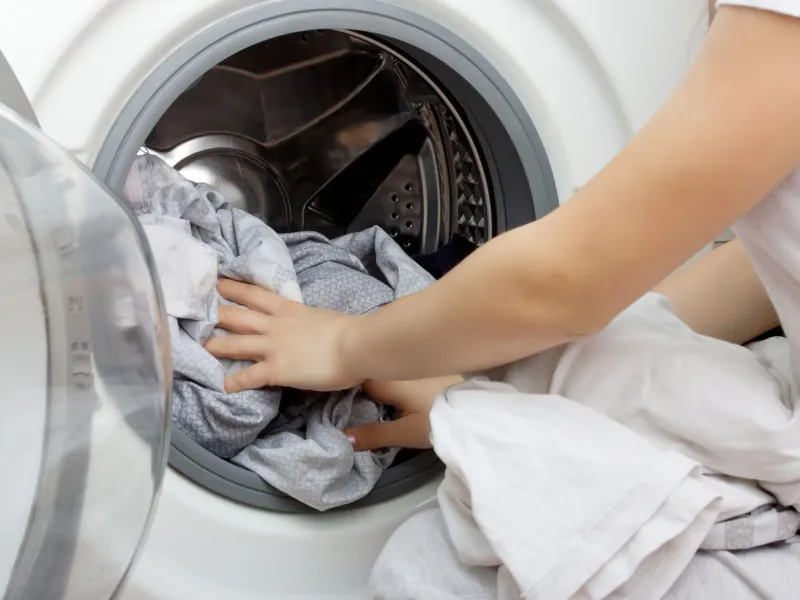
A washing machine is a household appliance typically used to wash clothes. It consists of a tub or basin that fills with water, which is then heated to a high temperature and agitated with either a washboard or an automated stirrer. The clothes are then left to soak in the soapy water before being drained and rinsed with clean water.
Washing machines first appeared in the early 1800s, although they were quite different from the models we use today. The earliest washing machines were more like large tubs that had to be filled by hand and then cranked in order to agitate the clothes. These early machines were very heavy and difficult to use, which limited their popularity.
It wasn’t until the early 1900s that electric washing machines began to enter the market. These early models were still quite primitive, but they were a marked improvement over the hand-powered washing machines of the past. Electric washing machines became more popular in the 1920s as more households had access to electricity.
During the Great Depression, many families could not afford to purchase new appliances. As a result, companies began offering rent-to-own plans for washing machines and other household appliances. This made it possible for families to have access to modern conveniences without having to pay the full purchase price up front.
After World War II, washing machines became even more popular as more households were able to afford them. In the 1950s, automatic washing machines were introduced. These machines allowed users to set a timer and walk away, which was a significant improvement over the earlier models.
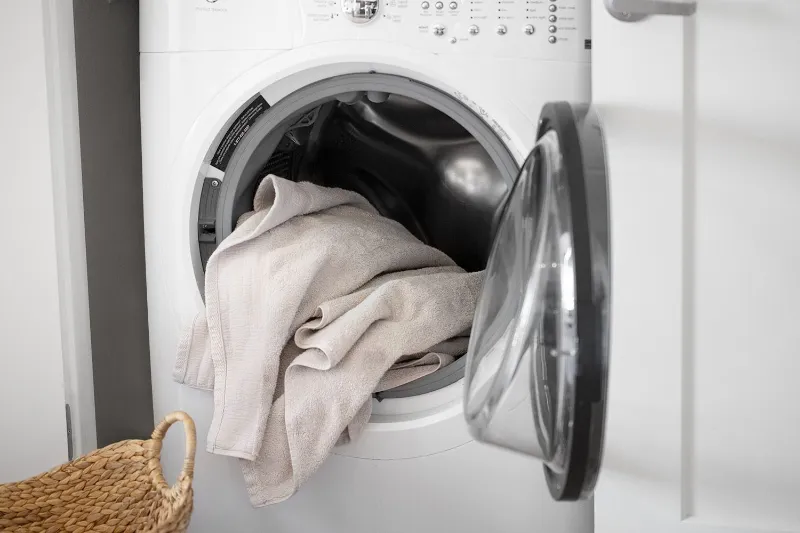
Today, there are a variety of different types of washing machines on the market to suit every need. Front-loading washing machines are some of the most popular, as they are energy efficient and can save space in a small laundry room. High-efficiency washing machines are also popular as they use less water and energy than traditional models.
When shopping for a washing machine, it is important to consider your needs and budget. There are a variety of features to choose from, so it is important to take the time to find the perfect machine for your home.
The clothes are then added to the water and agitated by an electric motor-driven agitator. The action of the agitator forces the dirt and stains out of the fabric and into the water. After the washing cycle is complete, the water is drained out of the tub and the clothes are rinsed with fresh water.
The rinse water is then also drained out of the tub. Finally, the clothes are spun in a centrifugal spin dryer to remove any remaining water.
After a certain amount of time, the washing machine will drain the dirty water and refill the tub with clean water to rinse the clothes. Finally, the washing machine will spin the clothes to remove any remaining water.
There are two types of washing machines: top-loading and front-loading. Top-loading washing machines have the tub located on top of the machine, while front-loading washing machines have the tub located in the front of the machine.
Top-loading washing machines are typically less expensive than front-loading washing machines. However, they use more water and energy than front-loading washing machines. Front-loading washing machines are more expensive to purchase, but they use less water and energy.
What Are The Benefits Of Using A Washing Machine?
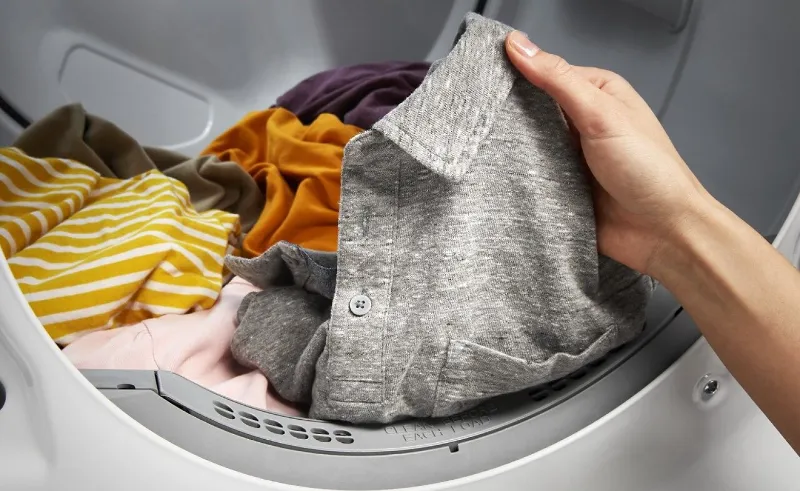
The benefits of using a washing machine include saving time, reducing wear and tear on clothes, and improving hygiene. By using a washing machine, you can save time by not having to wash clothes by hand.
The next benefit is that it can reduce wear and tear on your clothes. Washing machines use less water than washing clothes by hand, which means that your clothes will last longer.
Another benefit of using a washing machine is that it can improve hygiene. Washing machines use hot water to kill bacteria, and they also spin clothes at a high speed, which removes dirt and stains.
The next time you are wondering whether or not to use a washing machine, consider the benefits that it can provide. Washing machines can save you time, reduce wear and tear on your clothes, and improve hygiene.
Another time-saving tip is to pre-treat your clothes before washing them. This will help to remove any stains or dirt that may be difficult to remove in the washing machine.
If you are looking for a new washing machine, be sure to read reviews to find the best one for your needs. There are many different types of washing machines on the market, and each has its own set of features.
Be sure to compare prices and features before making your final decision. With so many different options on the market, you are sure to find the perfect washing machine for your home.
Finally, washing machines can improve hygiene. Washing clothes in a machine removes more dirt and bacteria than washing them by hand. This is especially important for people who have allergies or sensitivities to certain substances.
Washing machines have become an essential appliance in most homes as they offer a convenient way to clean clothes quickly and easily. However, there are a number of other benefits that come with using a washing machine that you may not be aware of.
You can also reduce the wear and tear on clothes by using a washing machine instead of hand-washing them. And finally, using a washing machine can improve hygiene by getting your clothes cleaner than if you were to wash them by hand. So, those are just a few of the benefits of using a washing machine.
How Does A Washing Machine Work?
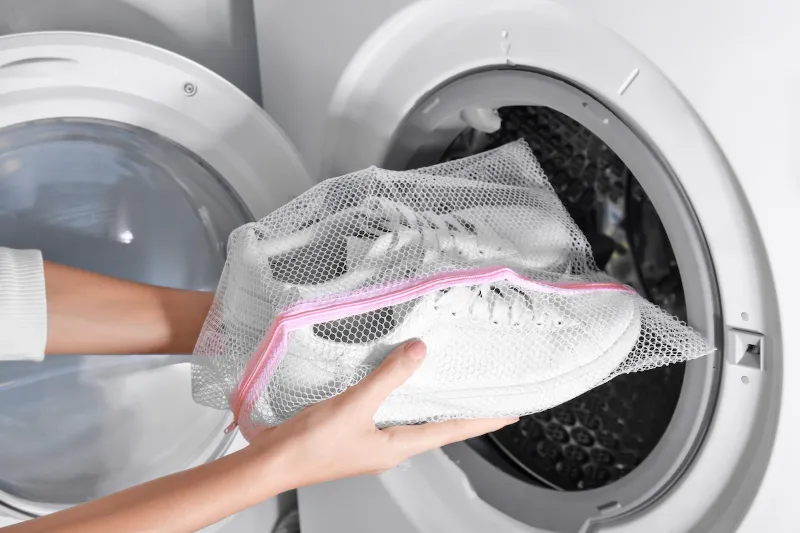
Washing machines work by agitating the clothes with water and detergent in order to remove any dirt or stains. The clothes are then rinsed with clean water to remove any residual detergent. Finally, the clothes are spun in order to remove any excess water.
The clothes are spun in a centrifuge to remove any excess water before being air-dried or put in a tumble dryer. The agitation loosens the dirt, and the water carries it away. Some washing machines also use hot air to help dry the clothes.
A washing machine works by using a motor to agitate the clothing in water and detergent. The water helps to loosen the dirt, and the agitation from the motor helps to remove it from the fabric. Some washing machines also use hot air to help dry the clothes.
Next, the washing machine will rinse the clothing in clean water to remove any remaining detergent. Finally, the clothes are spun in a large drum to remove any excess water. Most washing machines have a built-in timer so that you can set it and forget it.
Washing machines are a big time saver over handwashing, but they do require some regular maintenance. You should clean the inside of your washing machine regularly to prevent mold and mildew from growing. You should also descale your washing machine every few months to prevent the build-up of mineral deposits.
What Does Soil Mean On A Washing Machine?

A soil on a washing machine is an indicator of how much detergent to use. If your washing machine has a soil setting, it is telling you to use more detergent than usual. This extra detergent is needed to remove the soils that have built up on your clothes over time.
If you do not use enough detergent, your clothes will not come clean. Soil settings are usually used for people who have a lot of laundry to do or for people who have very dirty clothes. This extra detergent will help to remove any extra dirt or clothing fibers that may be clinging to your clothes.
Be sure to follow the directions on your particular brand of detergent to ensure that you are using the correct amount. The more soil on the washing machine, the more detergent you need to use to clean your clothes.
The soil on a washing machine is the dirt and dust that accumulates on the exterior of the appliance. This build-up can cause your washer to operate less efficiently, so it’s important to clean it regularly.
The best way to clean the soil off a washing machine is with a damp cloth and some soapy water. Simply wipe down the machine, being sure to get into all the nooks and crannies. Rinse the cloth and wipe down the machine again to remove any soap residue.
You can remove the soil by wiping down the machine with a damp cloth or using a vacuum cleaner with a soft-bristled attachment. If the soil is particularly stubborn, you may need to use a mild abrasive cleaner. Be sure to read your washing machine’s manual before cleaning to ensure that you don’t damage the appliance.
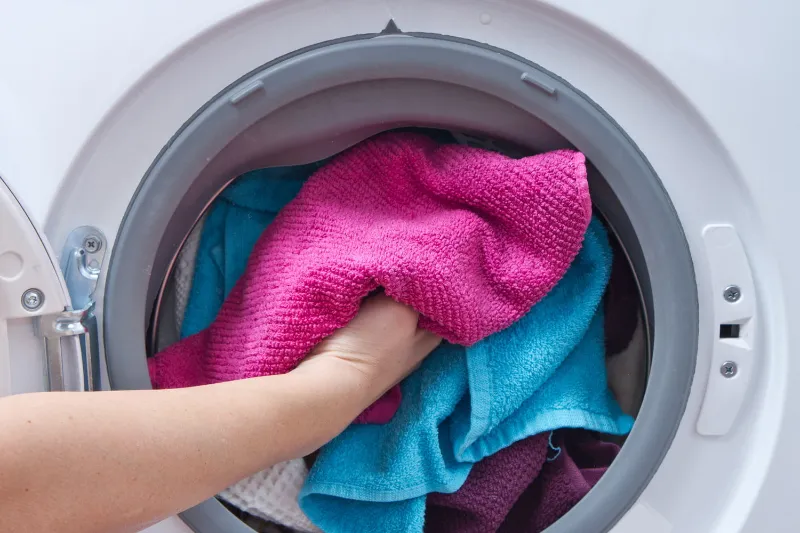
Soil generally means a build-up of dirt, lint, and other debris on the interior of a washing machine. This can cause problems with the machine’s performance and can also lead to the growth of mold and other allergens. To clean the soil, use a damp cloth to wipe down the inside of the machine.
Be sure to unplug the machine first and to avoid getting water on any electrical components. You may also need to use a mild detergent to break up stubborn dirt and debris. If the soil is extensive, you may need to call a technician for help.
It is important to clean the soil off of your washing machine regularly to ensure that it operates efficiently. The best way to clean the soil is with a damp cloth and some soapy water. Simply wipe down the machine, being sure to get into all the nooks and crannies. Rinse the cloth and wipe down the machine again to remove any soap residue.
If the soil is particularly stubborn, you may need to use a mild abrasive cleaner. Be sure to read your washing machine’s manual before cleaning to ensure that you don’t damage the appliance.
Prevent soil build-up by regularly cleaning your washing machine and by using a lint trap when doing laundry. Empty the lint trap after each load of laundry to prevent dirt and debris from accumulating. You should also wipe down the inside of the machine on a monthly basis to prevent the soil from getting out of control.
Why Your Washing Machine Has Soil?
There are many reasons why your washing machine may have soil in it.
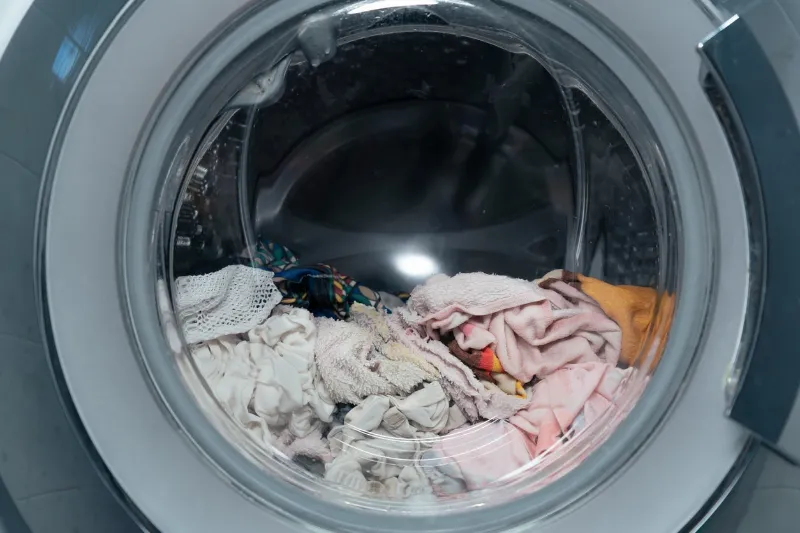
The first reason is that you may not have cleaned it out properly. If there is food or other debris in the washing machine, it can rot and create soil. Therefore, to prevent this from happening, it is important to clean your washing machine regularly.
Another reason why your washing machine may have soil in it is because of the detergent that you use. If you use a detergent that is not meant for washing machines, it can leave behind a residue that will eventually turn into soil. Therefore, it is important to use a detergent that is specifically designed for washing machines.
Your washing machine may have soil in it because of the water that you use. If the water is not clean, it can leave behind minerals and other contaminants that will turn into soil. Therefore, it is important to use clean water when washing your clothes.
One possibility is that the washer isn’t draining properly, so water and dirt are being left behind after each cycle as the machine refills. If your washer has an automatic dispenser, make sure it isn’t clogged and that the right amount of detergent is being dispensed.
You might also want to clean the floor around the washer to see if there’s any evidence of leaks. Another thing that can cause soil in a washing machine is not using enough detergent. If you don’t use enough detergent, the dirt and soils in your clothes will not be removed and will eventually build up in the machine.
Therefore, it is important to use the correct amount of detergent when washing your clothes. Finally, if you have a front-loading washing machine, the seal around the door can become dirty and cause soil to build up in the machine.
To clean the seal, simply wipe it down with a cloth soaked in warm water and detergent. Wiping down the seal on a regular basis will help to prevent soil from building up in your washing machine.
Now that you know the reasons why your washing machine may have soil in it, you can take steps to prevent it from happening. By regularly cleaning your machine and using the correct detergent, you can keep your washing machine clean and soil-free.
How To Clean Soil On A Washing Machine?
There are many ways to clean soil on a washing machine, including:
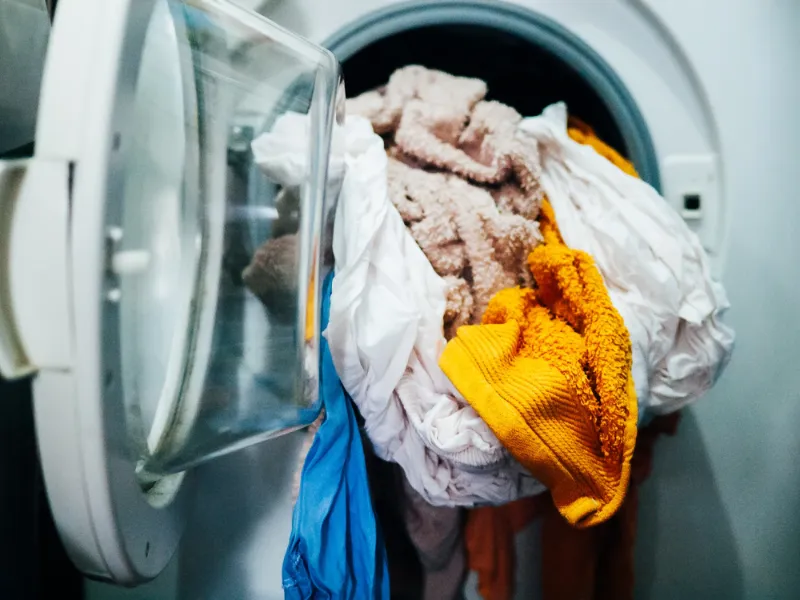
The first way is to use a sponge or cloth to wipe down the inside of the machine, including the door seal, after each use. To do this, you first need to unplug the machine and remove any laundry.
Next, fill the tub with hot water and a mild detergent. Use a sponge or cloth to scrub the inside of the washing machine, paying special attention to any areas with soil buildup. Finally, rinse the tub with clean water and dry it out before using again.
The second way is to run an empty cycle on your washing machine with hot water and a cup of white vinegar. Doing this once a week can help prevent soil buildup and keep your machine clean.
To do this, you first need to unplug the machine and remove any laundry. Next, fill the tub with hot water and add a cup of white vinegar. Run the empty cycle and then rinse the tub with clean water before using again.
The third way is to use a commercial washing machine cleaner. These cleaners are designed to remove soil and other buildup from your machine. To use one, you first need to unplug the machine and remove any laundry. Next, follow the instructions on the cleaner to ensure proper use. Finally, rinse the tub with clean water before using again.
The fourth way is to use a DIY washing machine cleaner. To make your own, you will need 1 cup of baking soda, 1 cup of white vinegar, 1 gallon of hot water.
To use this cleaner, you first need to unplug the machine and remove any laundry. Next, mix the baking soda and white vinegar together in a bowl. Then, add this mixture and the hot water to the tub of your washing machine. Run the empty cycle and then rinse the tub with clean water before using again.
The fifth way is to have a professional come and clean your machine for you. This is the most expensive option, but it will ensure that your machine is cleaned properly and safely. This is usually only necessary if the machine is very dirty or if you have difficulty cleaning it yourself.
If you notice soil buildup on your washing machine, it is important to clean it as soon as possible. Allowing soil to build up can lead to damage to the machine or even cause it to break down. Use one of the methods above to clean your machine and keep it in good working condition.
FAQs

How do you clean a washing machine with soil?
If the washing machine has a lot of soil on it, it can be cleaned with a mixture of ammonia and water. First, make sure the machine is unplugged and empty. Mix 1/2 cup of ammonia with 1 gallon of water, pour it into the machine, and let it sit for 30 minutes. Then use a brush to scrub the interior of the machine, and rinse it out with clean water.
What is the difference between a front-load and top-load washing machine?
Front-loading washing machines are more energy efficient than top-loading washing machines because they use less water. They also tend to be more expensive. Top-loading washing machines are less energy efficient because they use more water. However, they are typically cheaper than front-loading washing machines.
How often should you clean your washing machine?
It is generally recommended that you clean your washing machine once a month. However, if you have a lot of laundry or if your machine is used frequently, you may need to clean it more often.
How can I prevent soil from accumulating on my washing machine?
One way to prevent soil from accumulating on your washing machine is to rinse your laundry thoroughly before putting it in the machine. You can also use a detergent that is designed to prevent soil accumulation.
Another way to prevent soil from accumulating on your washing machine is to use a fabric softener. Fabric softener can help to keep the interior of the machine clean and free of dirt and lint. Additionally, you can clean the machine regularly with a mixture of ammonia and water.
Conclusion
What Does Soil Mean On A Washing Machine? Soil on a washing machine is not only unsightly, but it can also be damaging to the appliance. Soil on a washing machine can cause serious problems if it is not removed promptly. Not only does it make the appliance look dirty. If you find that your washing machine is covered in soil, take action right away to clean it up and prevent further damage.
In most cases, this will require the use of a cleaning agent and some elbow grease. Be sure to follow the manufacturer’s instructions when cleaning your washing machine, and take care not to damage any of the delicate parts. With a little bit of effort, you can keep your washing machine looking and running like new.

